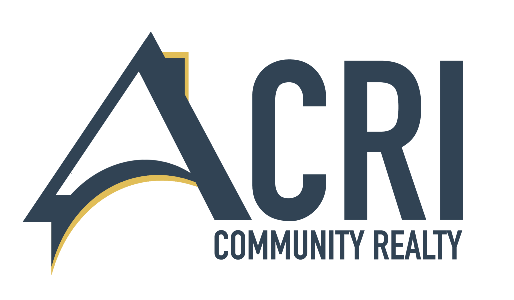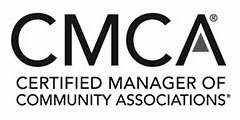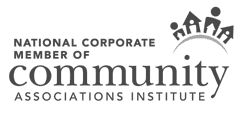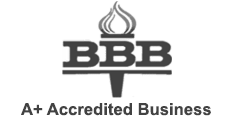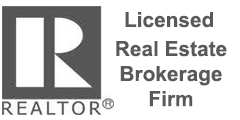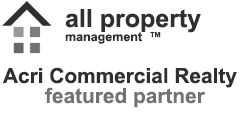What are HOA Fees Are and What do They Cover?
Are You Worried About a Home with HOA Fees?
needs, is in excellent condition, and is the right size, in the right location and neighborhood. Your landscaping, entrance, and common areas are always guaranteed to look fabulous because your new home is part of a homeowner’s association (HOA). You can’t even make an excuse to escape working out because the amenities even include a fitness center with active programming for children.
Your community association, or HOA, is part of what is known as a common interest development. In other words, you are responsible for sharing the costs of the maintenance and upkeep of all the great things that you otherwise could not afford on your own – everything from the common areas to the specific amenities. Some examples might include landscaping, snow removal, that excellent workout facility, and the pool and clubhouse.
Your Board of Directors is responsible for setting your HOA fees. Depending on your association, these fees might also be referred to as dues, assessments, or maintenance fees. They decide how much the fees are, what the fees will cover, and how often they need to be paid. Typically, the Board will use the annual association budget to determine each owner’s share to cover the association costs.
The Board members themselves do not profit from association fees. Board members are volunteers and fellow homeowners who are also responsible for their share of the cost. In most cases, an HOA is set up as a corporation (often a nonprofit). If any “extra” fees are collected that are left over after the budget is paid, the income goes back into the operations at the end of the year.
You probably realize that you have to pay the fees; however, you may not know what the fees are used for. Every association is responsible for documenting its own and unique rules and policies that are best for the homeowners of that particular association. You can find specific answers to your question by reading your association’s governing documents. Even if you do not have questions, it is a great idea to read and understand your association’s governing documents. Knowledge is powerful!
According to Dave Ramsey, a personal money expert, a well-run homeowners association is a blessing. Research shows that being a member of an HOA can increase the value of your property by 4.2%.
“A well-run homeowners association is a blessing.” ~ Dave Ramsey
Here are some common things that association fees typically cover.
- Ongoing maintenance and upkeep of common areas, equipment, systems, and shared amenities cost Money to maintain and repair when needed. Services may include:
- Lawn care
- Landscaping
- Snow removal
- Water, plumbing, and sewage systems
- A/C and heating systems
- Electrical system and lighting
- Sanitation system and trash removal
- Security system and gates
- Cleaning, painting, and upkeep of exteriors and common areas, such as hallway walls, carpeting, and clubhouse
- Pest control
- Repair of damaged roofs, interior roads, pipes, elevators, etc., due to age, weather conditions, or other causes
- Maintenance of shared amenities like the pool, fitness equipment, and clubhouse
- Insurance policies To protect your community’s building structures, exteriors, and common property against damage, your association will likely be required to purchase a master insurance policy – plus any other riders and add-ons as required by your community’s location, property type, and other needs, for example, flood insurance. In addition, other common association insurance coverages are liability insurance, theft insurance, and director’s and officer’s insurance. As a homeowner in an association, it’s also a good idea for you to carry your own homeowner’s policy.
- Utility payments Association fees cover the community’s common areas cost of electricity, lighting, water, heating, and air conditioning. Examples of such common areas may include a guardhouse and front gate, a lobby, a clubhouse, the pool, fitness rooms, meeting rooms. The cost associated with landscape lighting or street lights is also often included. In a high-rise, fees also may include common A/C and heating systems that cover the whole building. More and more often, HOAs are offered great deals from cable companies and internet providers to service their entire community; in cases like this, HOA fees cover those amenities as well.
- Reserve funds Associations should implement smart financial planning that includes establishing a reserve fund. Reserve funds are meant to cover repairs and replacements of major assets and systems, like elevators or roof replacement, for which you have planned and saved up over time – NOT for day-to-day expenses. A reserve study firm can work with your association to help you work out the expected life span of specific things like your pool pumps, furnaces, or boilers and the cost to replace them so your Board can begin to save the Money for these eventual replacement costs. Reserve funds are typically invested. By investing these funds, your association can potentially generate more revenue toward those expenses. Be sure to check with your state or local provinces for any specific restrictions on how your association’s reserve fund can be used. A substantial reserve fund is critical to avoiding the need for a special assessment!
- Contingency funds Money for a contingency fund is collected and automatically set aside each month to cover unforeseen community expenses and emergencies. This fund can cover costs like an insurance deductible resulting from a particularly devastating storm that hit the area or an unforeseen accident.
- Staffing If your community association employs its management, maintenance, or janitorial staff, a portion of your HOA fees will be collected to cover their salaries and benefits.
- Professional property management Many HOA and condo association boards choose to team up with a professional property management company – like Acri Community Realty. Your HOA fees cover that cost, too! A professional management company helps your board members effectively manage several things. The most common examples of where a professional property management company can assist best are vendor contracts, maintenance, insurance, investments, and other financial and operational tasks. All of this benefits you – the homeowner, by keeping your community at its best and increasing your property value.
No one likes to spend money for no reason.
Every property requires maintenance. When you buy a home, all the responsibility falls on you. With an HOA, you don’t have to worry about all the costs and effort necessary for the upkeep of your property.
Some of the most attractive parts of living in an HOA community are the amenities that come with your community. The added and overall benefit usually outweighs the cost of the HOA fees for residents.
When you live in an HOA or a COA, you can appreciate the sense of community and the security it affords you. You can meet neighbors and friends during community meetings and by taking advantage of the shared spaces.
